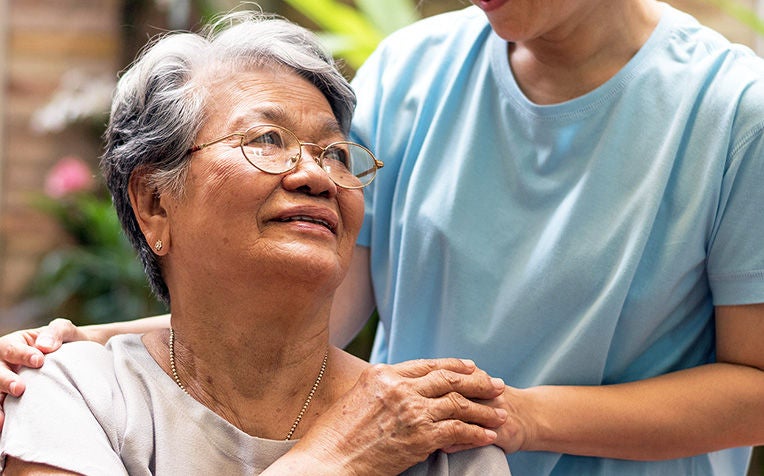
When communicating about palliative care with a loved one, provide assurance by letting your loved one know that you will always be there.
Good communication is the heart of effective palliative care
"Good communication allows us (as medical social workers) to connect with patients, understand their priorities and wishes as well as support them in making informed decisions about their care," shares Prabha D/O Techna Mitti, Senior Medical Social Worker (SMSW) from Medical Social Services at Sengkang Community Hospital (SKCH), under SingHealth Community Hospitals (SCH), a member of the SingHealth group.
"Having empathy in the way we speak relieves their (patients') burden and pain; a positive approach in our tone can reduce the physical and emotional complexities that they are experiencing. Despite that understanding, some may still find it uncomfortable and lack the confidence in communicating with palliative patients."
"When that happens, we need to recognise the barriers or factors affecting the communication, and then learn how to overcome them," she adds.
Prabha recalls her experience with a new nurse who was working overseas for the first time – it turned out to be quite an ordeal for her to communicate with palliative patients and family members. The nurse was at a loss for words when the family members began to ask her about the patient’s fading health and was unsure how to properly comfort them.
She and her team had to help the nurse overcome this anxiety with adequate training on how to connect with patients’ family members and by equipping her with communication skills in order to build up her confidence.
The guidance and sharing from her colleagues helped the new nurse overcome her barrier to communications.
It is also common for palliative patients and family members to experience emotional distress. In this situation, you can provide assurance and let them know that you will always be there to help them find comfort and care.
How to communicate with loved ones about palliative care
|
Your loved one may say something like this... | You may be tempted to reply like this... | Try this instead... |
|---|---|---|
| "I don't think I am going to make it..." | "Don't worry, you will be just fine..." | "It must be hard to come to trems with how things are going..." |
| "When I go, can you..." | "Choy! You are not going to die. You must fight this!" | "What about this that worries you or what can I do to help?" |
| "The treatment is not working..." | "There must be something else we can do..." | "I will be with you even when we have done all we can possibly can to treat you..." |
| "I don't think I can do this..." | "Don't give up!" | "It is tough enough. What would give you some comfort and strength at this time?" |
Have questions about cancer survivorship and palliative care? Get answers to commonly asked questions in this article here.
Ref: L20
Contributed by


















 Get it on Google Play
Get it on Google Play